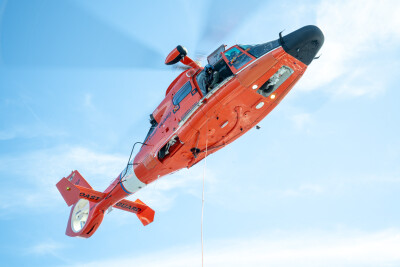Seafood 101
Who are you? Your adoring public demands to know. The scene has been set perfectly. Most Americans think commercial fishermen are "Deadliest Catch" material: waterborne cowboys, braving the frozen Bering Sea to land succulent holiday dishes.
It's not that far from the truth, right? Fishing is hard work, no matter where you do it. You don't have to be beating ice off the rails to take a beating from the elements. But more importantly, fishing is a rich part of America's culture. That's the message NOAA wants to send with Seafood 101.
The program officially launched in September at Seattle's Fishermen's Fall Festival. At press time, an Oct. 6 12-page supplement to the Seattle Times was slated to feature Pacific Northwest species, fishing seasons, recipes and profiles of local fishermen. National Fisherman is proud to partner with NOAA, the Alaska Seafood Marketing Institute, Northwest Fisheries Association and others on this project to spread the truth about the American seafood industry. For more information, go to NationalFisherman.com/seafood101.
This program is a step forward in reclaiming ownership of America's fisheries with the depth of knowledge available from NOAA and fishing communities across the country — information that is owned by the public, not NGOs.
But if we want to be the clearinghouse for fishing data, we need to strengthen the weak points of the Magnuson-Stevens Act. The New England groundfish industry is a case study on why the law needs flexibility. Our management priorities can't be: first, bankrupt the local fishing communities until we can be sure fishing effort is not the problem; second, look for other reasons for stock decline.
Fishermen don't want flexibility so they can plunder the seas. They want to preserve the resource because they know that goal includes self-preservation. No one could understand that humanity's relationship with the sea is one of careful balance better than those who fight the elements of the wild ocean frontier every day.
We had beginner's luck with the rebuilding timelines. They are arbitrary, yet they tend to work for the majority. But for the fleets targeting species that don't comply, we need to offer some form of reprieve. So let's reset our priorities to focus on improvements to gear, fishing portfolios and markets. Gear innovations ensure the preservation of fish habitats (as far as fishing is concerned — this is to say nothing of pollution, runoff and climatic events). Reintroducing flexibility to fish a variety of species and deliver them to healthy markets prevents fishing stress on stocks. It is human nature to make efforts that are best rewarded. In commercial fishing, that is not with depleted species, so long as there is another species to target legally and sell for a fair price.
If we simply cling to the successes we have carved out instead of identifying and eliminating weaknesses, the elusive opportunities to make real sea changes will slip through our fingers. We need flexibility in Magnuson to save fishing communities. Without it, all we will have left is the massive law that strangled the industry.
— Jessica Hathaway






